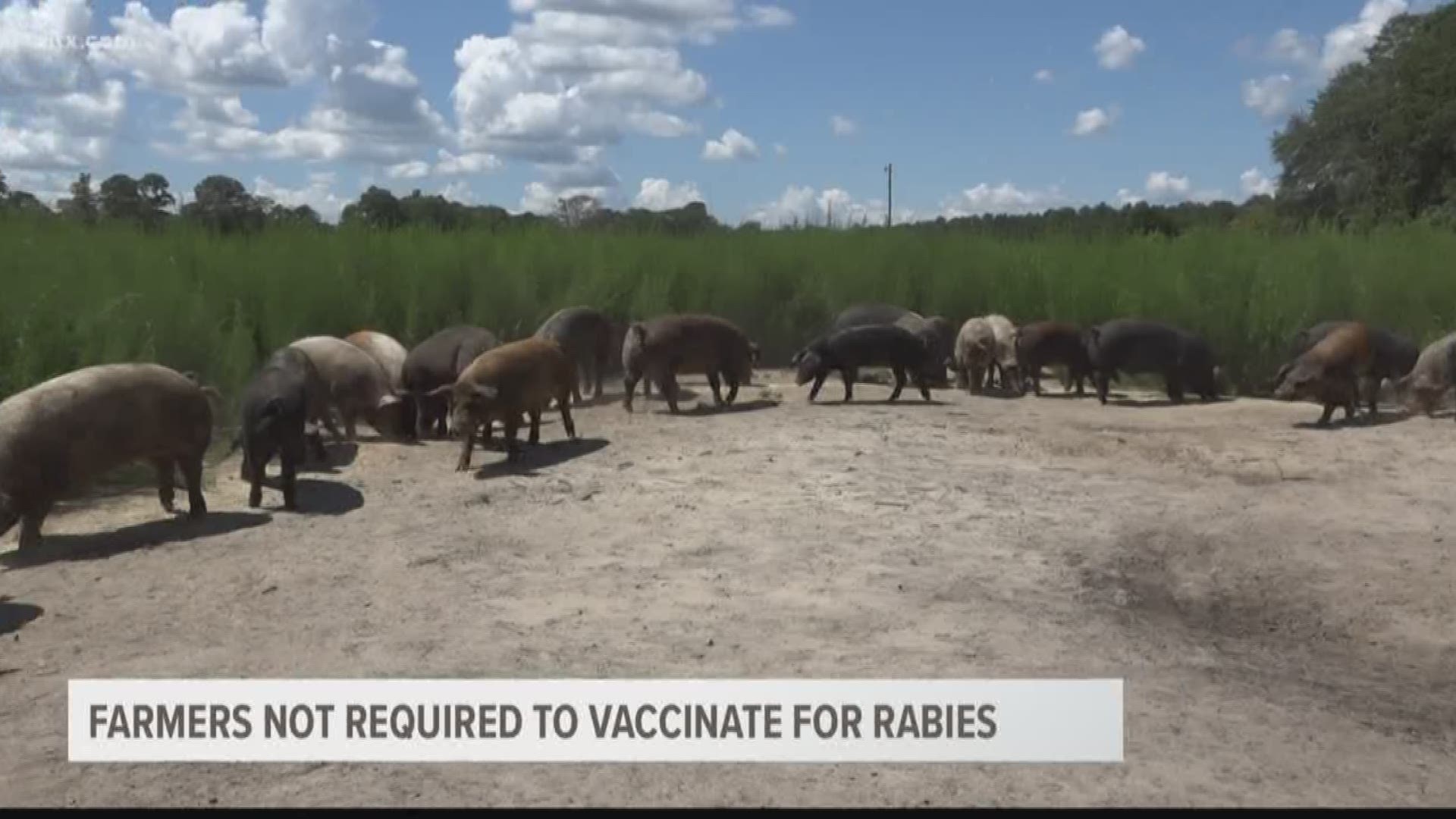COLUMBIA, S.C. — The South Carolina Department of Health and Environmental Control says two animals with rabies have been found in the Midlands.
A rabid bat reported in Lexington County and a rabid skunk reported in Newberry County also exposed pets to the disease.
DHEC confirmed that a skunk found near Plantation Acres Road and Highway 34 in Newberry, S.C. has tested positive for rabies. There are no known human exposures reported at this time. Two dogs were exposed and will be quarantined as required in the South Carolina Rabies Control Act.
The skunk was submitted to DHEC's laboratory for testing on Nov. 30 and was confirmed to have rabies on Dec. 1.
In Lexington County, DHEC confirmed that a bat found near Kimmey Road and Fish Hatchery Road in Gaston, S.C. has tested positive for rabies. There are no known human exposures reported at this time. One dog was exposed and will be quarantined as required in the South Carolina Rabies Control Act.
The bat was submitted to DHEC's laboratory for testing on Nov. 30 and was confirmed to have rabies on Dec. 1.
DHEC reminds the public to report any possible human or animal exposures by contacting the local Environmental Affairs office. Be sure to immediately wash any part of the body that may have come into contact with saliva or neural tissue with plenty of soap and water and seek medical attention. Exposure is defined as a bite, scratch, or direct contact with saliva or body fluids from an infected animal. It is important to keep pets up to date on their rabies vaccination which is one of the easiest and most effective ways to protect against the disease.
“Rabid bats have been known to transmit the rabies virus to humans and pets,” said David Vaughan, director of DHEC's Onsite Wastewater, Rabies Prevention, and Enforcement Division. “People don’t always realize they’ve been bitten since bat teeth are tiny and bites are easy to overlook. Because of this, you should always assume a person has potentially been bitten when:
• They wake up to find a bat in a room or tent;
• A bat is found where children, pets, or persons with impaired mental capacity (intoxicated or mentally disabled) have been left unattended; or
• A person or pet has been in direct contact with a bat.”
Any bat that could have had potential contact with people, pets, or livestock should be safely trapped in a sealed container and not touched. Never release a bat that has potentially exposed a person or pet. Once a bat is released, it cannot be tested for rabies. Similarly, never handle a bat or any wild or stray animal, alive or dead, with bare hands.




